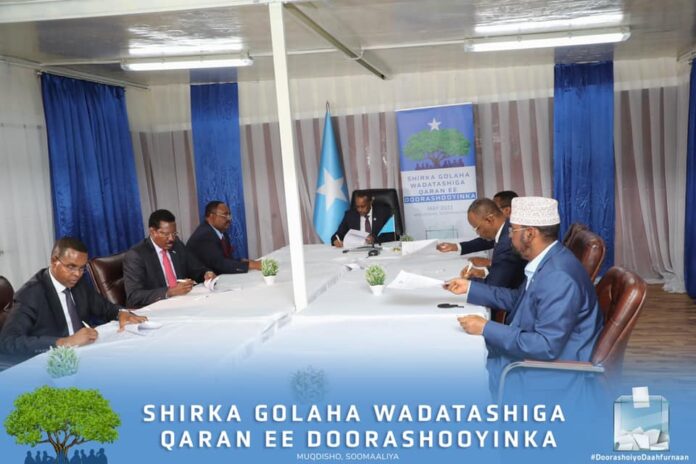Somalia’s Prime Minister Mohamed Hussein Roble and regional state presidents have signed an agreement to allow elections to take place after an impasse that had held them up for months, the state-run broadcaster said on Twitter.
Clan elders were meant to have selected lawmakers in December, who in turn were due to elect a new president on Feb. 8. Both procedures failed to take place, amid disputes over a number of issues including the composition of an election commission which would supervise the voting.
“The prime minister and state leaders signed the election agreement,” Somalia News Agency said on Twitter. It gave no details of the agreement itself, nor of any new schedule for the elections.
Somalia was initially aiming to hold its first direct election since civil war erupted in 1991, but delays in preparations and continuous attacks by al Shabaab had forced it to resort to an indirect vote.
President Mohamed Abdullahi Mohamed has sought a second term. The opposition accused him of packing regional and national electoral boards with his allies.
In April, the lower house of parliament voted to extend the president’s four-year term by another two years. The Senate rejected the extension, and troops opposed to the move seized positions in the capital. They have since returned to barracks.
The political crisis has caused concern that clans could turn on each other and al Shabaab, a militant group linked to al Qaeda, could exploit a security vacuum.







